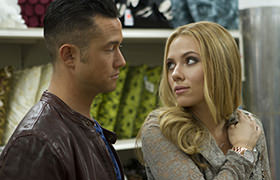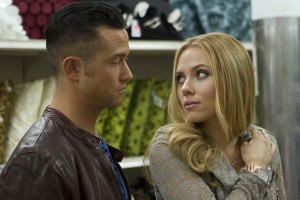Actor-director films open up possibilities
This weekend marks the release of Don Jon, Joseph Gordon-Levitt’s directorial and writing debut and the latest in a long line of movies directed by established actors. It happens pretty often. After a while, an established actor can get the itch to try their hand at working on the other side of the camera (though not necessarily relinquishing their role in front of it). This leads to varying results. For every actor that finds success in this leap, there are five who stop after their first attempt. Sure, there are some fantastic actors-turned-directors out there. Clint Eastwood has easily made the most successful transition but others such as Ron Howard and, recently, Ben Affleck have also found great success. In fact, six actors have gone on to win Academy Awards for best director (Eastwood did it twice) and seven such films have won best picture, all in the last 33 years (with Argo taking the most recent one last year). The list of supremely talented actors who directed once and stopped, however, is staggering — Marlon Brando, Douglas Fairbanks, Dustin Hoffman, Bill Murray, the list goes on and on. Needless to say, the jump is far from a sure thing.
The strongest criticism of this practice is that these actors receive the opportunity to direct out of their already-established fame, beating out aspiring directors who are possibly more talented but less well-known. This is almost certainly valid, as there were probably more talented alternatives for some of these films. Or, in an extension of this idea, there were probably better film alternatives to be made over some of the passion projects that established actors got green-lit through their stature. The mere fact that it is a George Clooney or a Ryan Gosling pitching a movie means, at the very least, that more meetings will be scheduled and more opportunities will be available. This ample selection of opportunities goes a long way to explain why so many actors get to make these movies.
Perhaps this also goes a long way in explaining the large success some of these films have had at the Academy Awards. Certainly, all seven of the films that won were great films, but it is curious that two of them are often cited amongst the biggest Oscar mistakes (Ordinary People winning over Raging Bull and Dances With Wolves beating Goodfellas). Isn’t it possible that the fact that these were the directorial debuts of movie superstars Robert Redford and Kevin Costner respectively helped the cause of the films in the eyes of the voters? Perhaps it didn’t help to the extent that the fact swayed the voters by itself, but instead just enough so as to tip the scales against much grittier Scorsese efforts. This is not to say that Oscar success is a reliable measure of film quality, nor that the two films were not really good, but it certainly seems that the two directors’ star power gave their films a push.
That’s at the center of all of this: star power. The more fame an actor has, the easier it is to get a film done or noticed. Beyond this, the more star power an actor has, the bigger his or her ego is liable to be. Meaning, simply, that it is all the more likely that they think they can do anything. If that is a common mentality going into productions, then it would certainly explain the large number of one-and-dones as these actors realize just how draining and difficult the directorial position can be. Naturally, an actor being very famous is not necessarily an indicator that a film will be bad or that they will go into a production with incorrect expectations. In fact, for certain actors, it can be quite the opposite. Think about it: The bigger a star a particular actor is, the more screen time they occupy. The more screen time an actor occupies generally means the more time they are around the set. This, in turn, means that there is a directly proportional link between the brightness of an actor’s stardom and the experience they have around a director. In the right hands, this can effectively be an actor’s equivalent of film school, picking up all sorts of tricks of the trade. Sure, there has to be talent there, but the experience that can be gained is invaluable, and where gaps remain, their associations with famous directors can help to fill them. Gordon-Levitt has talked about the large amount of help that director Christopher Nolan (the two worked together on both Inception and The Dark Knight Rises) gave him in the production of Don Jon.
If all the ingredients come together the right way, an actor can do wonderful things for himself. Eastwood, taking the tools he learned from masters such as Sergio Leone and his own experience as an actor, reinvented himself from an action star into a nuanced director who could get great performances out of his actors through his connection to them as a fellow actor. Affleck and Howard revitalized their careers in similar ways. If Gordon-Levitt mixes all his ingredients properly, this could be the beginning of another success story. We’ll just have to wait and see.
Daniel Grzywacz is a senior majoring in neurosciene. His column “The Reel Deal” runs Fridays.
Follow us on Twitter @dailytrojan


